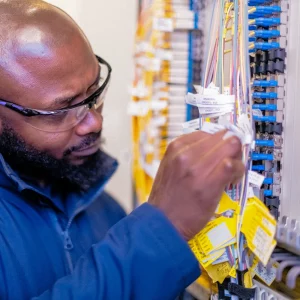Sponsored Links
UK ISPs Welcome Joint Parliamentary Committee Report on Draft Defamation Bill
Posted: 19th Oct, 2011 By: MarkJ
 The UK Internet Service Providers Association ( ISPA ) has today put its weight behind a new report from the Joint Parliamentary Committee, which called upon the government to ensure that its forthcoming Libel Law changes (Draft Defamation Bill) are updated to handle the modern internet age and to protect those who speak out in the public interest. Unless of course you're somebody who likes to make anonymous posts, in which case the new law probably won't help.. much.
The UK Internet Service Providers Association ( ISPA ) has today put its weight behind a new report from the Joint Parliamentary Committee, which called upon the government to ensure that its forthcoming Libel Law changes (Draft Defamation Bill) are updated to handle the modern internet age and to protect those who speak out in the public interest. Unless of course you're somebody who likes to make anonymous posts, in which case the new law probably won't help.. much.At present Internet Service Providers (ISP) and web hosts are often stuck between a rock and a hard place, which effectively forces them to act as judge and jury over somebody else's online content (blog / forum post etc.). At the same time commercial firms and people have a right to defend themselves against unjust comments, although deciding which comments are unjust (the post or complainants) is usually the hardest part.
Nicholas Lansman, ISPA Secretary General, said:
"ISPA believes that the current regulatory framework for libel law insufficiently addresses the way content is published and conveyed in the digital environment. We welcome the Joint Committee’s report and urge Government to adopt a court based system that provides clarity to all parties involved and believe that a failure to provide a clear and workable regulatory framework for online content will not only have a chilling effect on freedom of speech, but will also undermine any efforts to protect robust scientific and academic debate more effectively."
"ISPA believes that the current regulatory framework for libel law insufficiently addresses the way content is published and conveyed in the digital environment. We welcome the Joint Committee’s report and urge Government to adopt a court based system that provides clarity to all parties involved and believe that a failure to provide a clear and workable regulatory framework for online content will not only have a chilling effect on freedom of speech, but will also undermine any efforts to protect robust scientific and academic debate more effectively."
The ISPA supports the Committee’s recommendation that Government should reduce the pressure on online hosts and ISPs to take down material whenever it is challenged as being defamatory. It also welcomes the Committee's suggestion of moving to a court-based notice and takedown procedure for identifiable content.
The report's recommendations are aimed at both cutting costs (abolition of jury trials in defamation actions) and weeding out "trivial cases" at an early stage via a "stricter test for determining whether a case is serious enough to go to court". But it's the internet related changes that will be of most interest to ISPs and our readers.
Joint Parliamentary Committee - Defamation Bill Recommendations (Internet)It's certainly true that far too many people often make harsh criticisms from behind the veil of anonymity, although many would probably rather have their content removed than face the hassle of having to identify themselves.
* The committee argues that the law has not kept pace with the development of modern communication culture. It outlines a new notice and take-down procedure for the internet, designed to provide a quick and easy remedy for those defamed online and better protection to online publishers. Internet hosts gain the protection of the law provided they act responsibly by following the new procedure. Any anonymous postings must be taken down upon complaint, unless authors are prepared to identify themselves or there is an overriding public interest in publication. The committee recommends changing the law to promote cultural change so that, over time, the credibility of anonymous postings - and the damage that they can cause - is limited.
* The committee recommends changes to make it more difficult for companies to use their financial muscle and the threat of court action to silence critics. Before bringing a claim, companies would have to obtain the permission of the courts by demonstrating an arguable case that it has suffered "substantial financial harm".
Then there's the issue of how you classify online anonymity in the first place. Ordinary websites have no way of knowing for sure whether somebody is really who they say they are. In this instance the "overriding public interest" defence is a tough one to gauge without a means of identifying somebody's legitimacy.
Search ISP News
Search ISP Listings
Search ISP Reviews
Latest UK ISP News








Cheap BIG ISPs for 100Mbps+
150,000+ Customers | View More ISPs
Cheapest ISPs for 100Mbps+
Modest Availability | View More ISPs
Latest UK ISP News
Helpful ISP Guides and Tips
Sponsored Links
The Top 15 Category Tags
- FTTP (6832)
- BT (3895)
- Politics (3086)
- Business (2779)
- Openreach (2673)
- Building Digital UK (2519)
- Mobile Broadband (2490)
- FTTC (2145)
- Statistics (2138)
- 4G (2106)
- Virgin Media (2034)
- Ofcom Regulation (1785)
- 5G (1748)
- Fibre Optic (1607)
- Wireless Internet (1601)
Sponsored
Copyright © 1999 to Present - ISPreview.co.uk - All Rights Reserved - Terms , Privacy and Cookie Policy , Links , Website Rules































